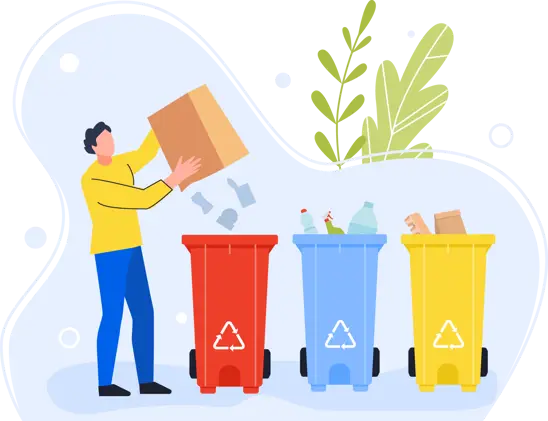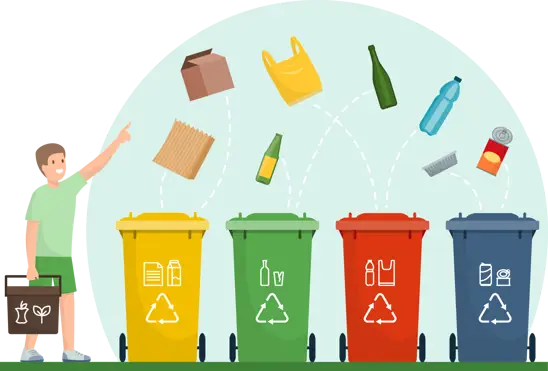
Choosing the Right Bin for Your Commercial Waste: A Comprehensive Guide
As a business owner, dealing with commercial waste and making sure it’s disposed of efficiently can be a task in itself.
Whether you are in hospitality, construction, retail, healthcare, or manufacturing – choosing the right commercial waste bins can play a crucial role in streamlining your business and adhering to regulations.
There are many factors involved in managing commercial waste, from disposal to segregation to recycling.

What Are Commercial Waste Bins?
Commercial waste bins are large containers clearly marked and designed specifically for businesses to help with the segregation, recycling, and disposal of waste materials.
There are strict guidelines in place under the Environmental Protection Act 1990 and Waste Regulations 2011 to ensure that waste produced by businesses is kept to a minimum and promotes the reuse and recycling of waste wherever possible.
Available in a range of sizes, commercial bins can accommodate varying commercial waste collection needs.

Choosing the Right Bins: Things to Consider
When selecting the right commercial waste bins to complement your waste management plan, it’s important to consider the following key factors:

The Type of Commercial Waste Your Business Produces
As well as general waste and dry mixed recycling, it is important to consider other types of waste that your business may produce, such as:
- Cardboard & Paper
- Glass
- WEEE & Lamp Tubes
- Hazardous Waste
- Clinical Waste
- Sanitary Waste
- Food Waste
The types of waste your business produces will dictate the type of waste bins you require.
Selecting the right types of commercial waste bins is crucial to ensure compliance and effective waste management.

How Much Commercial Waste Your Business Produces
The second key element in securing an efficient and compliant waste management plan is understanding the volume of waste your business generates.
At WM101, our waste bins come in a variety of sizes to accommodate smaller spaces with low waste, to larger commercial businesses that produce large amounts of waste.
Our available sizes are as follows:
- Waste Sacks – These are used for general waste and mixed recycling and have a capacity of around 20 to 60 litres.
- 240L Wheelie Bin – Suitable for general waste, mixed recycling, food, and glass with a capacity of 4 to 5 bin bags.
- 360L Wheelie Bin – suitable for general waste, mixed recycling, food, and glass with a capacity of 5 to 6 bin bags.
- 660L Wheelie Bin – suitable for general waste and mixed recycling with a capacity of 10 to 12 bin bags.
- 110L Wheelie Bin – suitable for general waste and mixed recycling with a capacity of 15 to 18 bin bags.
- 6 Yard Front End Loader – suitable for general waste, mixed recycling, with a capacity of 50 to 70 bin bags.
- 8 Yard Front End Loader – Suitable for general waste, mixed recycling, with a capacity of 60 to 80 bin bags.
- 10 Yard Front End Loader – Suitable for general waste, mixed recycling, with a capacity of 70 to 90 bin bags.

Commercial Waste Responsibilities
All businesses have a legal responsibility under the Environmental Protection Act 1990 to ensure that commercial waste is segregated, contained safely, and disposed of by licenced waste carriers. Failure to comply with regulations can result in a hefty fine and the risk of imprisonment.
With numerous waste types that can be recycled or reclaimed, it is essential to implement appropriate methods for collecting and disposing of these materials.
Commercial Waste Services from WM101
At WM101, we have over 50 years of experience in the commercial waste industry. Our specialist team provides dedicated, bespoke, site-specific solutions to assist with commercial waste management.
For more information or a free, no-obligation consultation and quotation, contact our team today.
06/11/2024